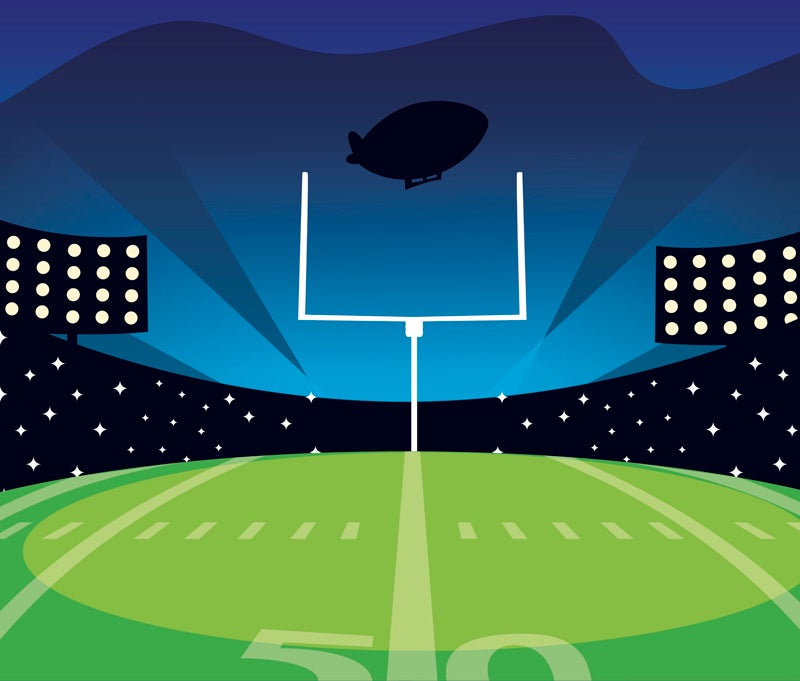Research suggests roughly 68% of consumers who planned to watch the Super Bowl over the weekend (myself included) were more interested in the ads than the game itself.
For the most part, the commercials this year relied on comic relief and highlighted noncontroversial topics, like streaming and entertainment.
Brands have been treading more carefully overall in fear of potential consumer backlash if they take a stance on any social or political issues.
And yet, the commercial lineup this year still managed to cause some controversy. Namely, Google’s ad for Gemini AI and a weight loss commercial from Hims & Hers.
As a TV advertising reporter and an everyday consumer, it’s always interesting when my worlds collide. That was certainly the case over the weekend while I was streaming on my couch all night lamenting the rise of AI and coping with humor.
Super Bowl brand trends
Humor was a common denominator, even when perhaps unexpected.
Stand Up Against Hate, for example, ran two (of the same) commercials featuring a mock argument between Snoop Dogg and Tom Brady. Featuring rap sensation Snoop Dogg was the organization’s way of using humor to call attention to an important topic.
The ad for Totino’s pizza rolls was more classically hilarious and featured my favorite comedian, Tim Robinson, star of the Netflix hit “I Think You Should Leave.” But my all-time favorite commercial this year was Taco Bell’s ad with Lebron James that celebrates fans, not celebrities. (It’s hilarious.)
It will be interesting to see whether brands continue to play it safe beyond the Super Bowl arena. The current political climate is making brands afraid of drawing consumer backlash or the ire of the Trump administration.
Humor aside, another big trend during the Big Game was media and entertainment ads for the growing number of competing ad-supported streaming services.
Disney+, YouTube TV and Fox-owned Tubi all ran ads during the game. Tubi was also streaming the Super Bowl for the first time. Meanwhile, Disney promoted “The Avengers,” Fox pushed “The Masked Singer” and the studios advertised new movies, including “Mission: Impossible” and Martin Scorsese’s “The Saints.”
Another trend was AI.
There were at least five spots about AI from Google, Meta and ChatGPT plus two different Salesforce ads. All four of these giant tech companies are vigorously trying to gain advertiser trust and adoption.
Google’s Gemini ads just can’t seem to win, though. After its Olympics ad faced backlash over the summer when some consumers called it tone-deaf to concerns about AI, its Super Bowl ad got negative attention for including information that was not AI-generated and also incorrect – specifically that Gouda accounts for between 50% to 60% of the world’s cheese consumption.
Weighed down
Weight loss ads also had a noticeable presence.
Both Ro and Hims & Hers ran spots for weight loss drugs, with the latter already causing controversy days before the Big Game.
On Friday, regulators and advocacy groups called on the FDA to push Fox to pull the Hims & Hers ad.
Two senators alleged that the ad “may mislead patients” about the company’s products. The ad ironically criticizes the weight loss industry overall while pushing its own weight loss drug. But it doesn’t disclose side effects except “in small, barely legible font” for its product that isn’t FDA approved, according to the senators that wrote to the FDA. The ad didn’t get pulled, though; it ran during the second half of the game.
Weight loss advertising is a particularly scrutinized form of health care advertising right now, mostly because of concerns over sensitive data getting misused. But there’s another concern about weight loss ads that also applies to TV advertising: the fact that these ads can cause or exacerbate eating disorders by glorifying weight loss. Both areas of concern may have contributed to Meta’s decision to restrict weight loss ads on its social platforms earlier this year.
Conversely, Dove ran a commercial during the Big Game that had a much more positive message. The ad featured a stat suggesting that half of girls who quit sports are criticized for their body type, followed by a call to action to change how we talk to young girls.
So, go Dove for that.
And, well … go Birds. 🦅 🏈
Are you enjoying this newsletter? Let me know what you think. Hit me up at alyssa@adexchanger.com.











